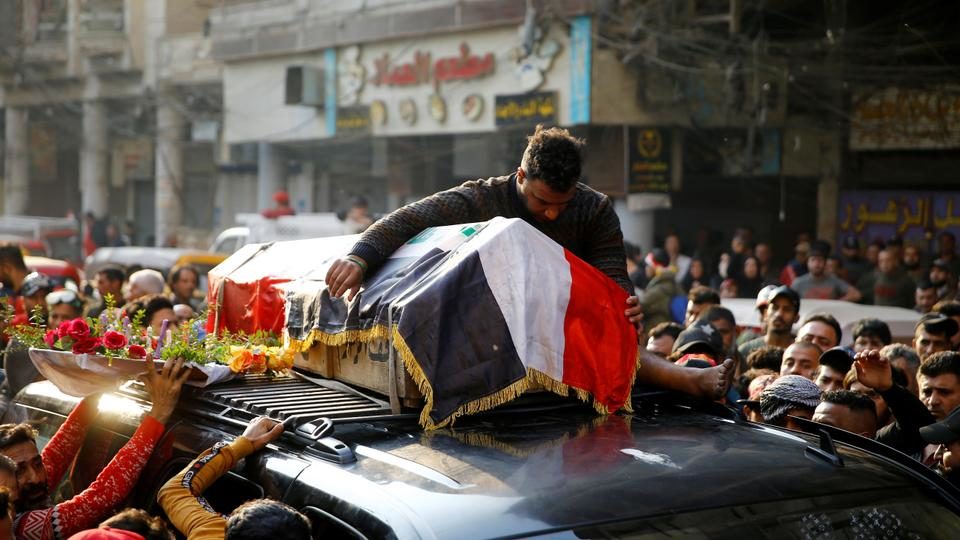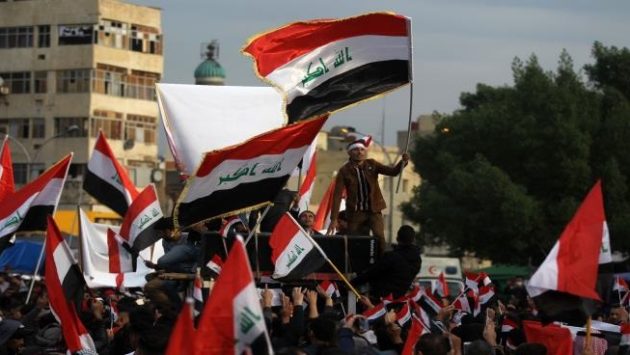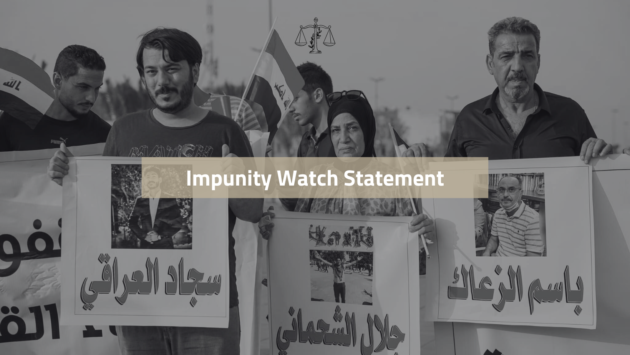‘Too Early to be Happy’: Iraq’s Fate Hangs in Balance After PM’s Exit
Iraqi protesters are concerned whether Prime Minister Mahdi’s replacement will be acceptable to the nation, while experts warn that any bold moves by Iran could lead to further bloodshed or worse.
When angry Iraqi protesters took to the streets in early October, they had one clear demand: the complete change of the government rather than so-called reforms. Two months in, Prime Minister Adil Abdul Mahdi officially resigned amid mounting pressure over the bloodbath that has killed more than 400 people, injured nearly 20,000.
Still mourning the dead, protesters are cautious about what lies ahead and doubt that Mahdi’s departure will help them move toward a desirable solution. Iraq experts also warn a period of uncertainty or a further political crisis, or worse, could follow.
“It’s too early to be happy, this is just the beginning of the elimination of rest of corrupt politicians,” Ameer Hazim, a 23-year-old photographer from Baghdad told TRT World, adding that it’s still partly satisfying to see the first step — Mahdi’s resignation — happening.
“But I’m also very concerned if this is just procrastination or manipulation and the government won’t really address the voice of people,” he said.
In Iraqi politics, the second step is to find Mahdi’s replacement, a candidate who would be welcomed by Iraqis. That’s a difficult one, given the country’s recent history. After the elections in 2018, it took five months to name a president, prime minister and form a government. In the end, the Iraqi government wasn’t formed by the largest political block and parliament — it was formed as a compromise between two coalitions, Islah and Bina.
As per the Iraqi constitution, the largest bloc in the parliament is tasked with nominating a new prime minister within 15 days of Mahdi’s departure. The new PM would have one month to form a new government.
The process of nominating a new PM already seems to be facing challenges. The Fatah alliance has stepped up claiming to be the largest bloc in the parliament after Sadr’s al Sairoon alliance made a similar claim in a letter to President Barham Salih. The Bina coalition is dominated by many militia factions close to Iran, while the Islah coalition is led by al Sairoon, headed by populist cleric Muqtada al Sadr.
Al Sairoon previously said it wanted protesters to elect the next prime minister, giving up its right to make the nomination as the largest bloc.
Ghassan Atiyyah, a visiting fellow at The Washington Institute, focusing on Iraqi politics, says a failure to agree on a candidate to nominate that could potentially create fresh turmoil.
Attiyah told TRT World that the real question is whether the person replacing Mahdi will be welcomed by Iraqis, even if the nomination happens in a timely manner.
“The opposition would like to see new faces and a new administration. Because basically there is a lack of trust between the masses and the ruling class,” Attiyah said.
“Such a trust won’t be gained by changing a name or by recycling those from the same ruling class or the same ruling parties.”
Since the beginning of the protests on October 1, frustrated protesters have been complaining about the country’s long standing problems, such as corruption, a lack of jobs and basic services. The majority blames the country’s political class for mismanaging the economy and helping Iran increase its influence in the country.
Mahdi previously rejected resigning after meetings with the commander of Iranian Revolutionary Guards’ Quds Force. He was convinced to submit his resignation after Iraq’s most influential Shia cleric, Grand Ayatollah Ali al Sistani, called for a change in the leadership as protesters torched the Iranian consulate in Najaf, reports said.
Tehran’s long influence in the country became particularly visible after Iran-backed Hashd al Shaabi, Popular Mobilisation Forces (PMF), along with Peshmerga forces, played a significant role in the territorial defeat of Daesh. The Iranian Revolutionary Guards trained and advised a conglomerate of militia groups under Hashd al Shaabi after Daesh. The group’s commander Hadi al Ameri later ran in the 2018 elections as leader of the al Fatah alliance — a move that is seen as a sign of increasing Iranian influence in Iraqi politics.
The Washington Institute’s Atiyyah says the country’s fate is now hanging in the balance, depending on what kind of position the Iranian Revolutionary Guard will choose to adopt — accommodation or a further confrontation.
As the talks continue to determine a replacement for Mahdi, however, Iran’s pressing presence in the process remains amid ongoing protests increasingly turning into a revolt that is defiant against Iran.
Qasim Sulaimani, Major General of Iran’s Islamic Revolutionary Guard Corps, is currently in Baghdad with the aim of pushing for a particular candidate, according to a source speaking to AFP. Mohammad Kawthranay, Lebanese militant group Hezbollah’s point-man in Iraq, is also taking part in the ongoing negotiations, the report said.
For Hussein Ali, a journalist who has been attending protests in Baghdad since early October, the country is facing a grim prospect.
“The resignation was not the main requirement,” Ali told TRT World. “There were other basic demands, namely the replacement of the election law, replacement of the Electoral Commission, adopting a law regulating the work of the parties…
“We don’t know if the government will respond to these demands, but it is certain that people will not return home without these demands.”



